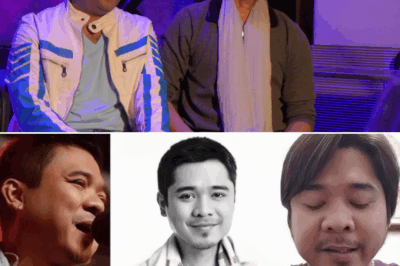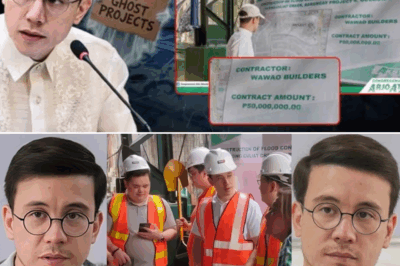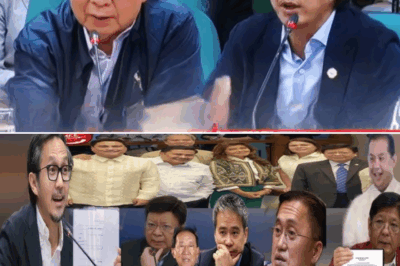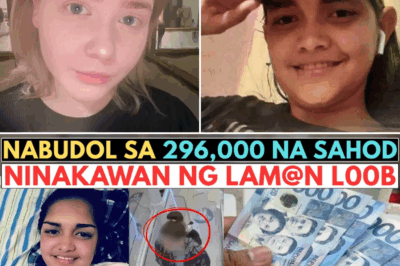In a time where public trust in media is constantly tested, a recent statement by Pasig City Mayor Vico Sotto has sparked serious conversation—and controversy—across the Philippines.
In a candid remark that quickly caught fire online, Mayor Vico called out a disturbing practice that, according to him, still exists behind the scenes in some corners of the local media industry: reporters allegedly asking for payment in exchange for interviews. The statement, while brief, was enough to set off a flurry of reactions, both from the public and, more notably, from journalists themselves.

And the reactions? They’ve been sharp, emotional, and—some might say—long overdue.
The Comment That Lit the Fuse
It all started when Mayor Vico, known for his transparency and no-nonsense leadership style, casually dropped a bombshell during an interview. Without naming names, he expressed his disapproval of certain media practitioners who, he claimed, still expect payment just to feature or interview a public official. His words were clear: “Hindi ako nagpapabayad para lang ma-interview.”
What may have seemed like a throwaway line quickly snowballed into a national discussion.
Journalists Speak Out
In the hours and days following his statement, journalists and media outlets across the country voiced their opinions—many of them defending the integrity of their profession, while others acknowledged that, sadly, such practices do exist in some circles.
Some veteran reporters were quick to clarify that while unethical behavior exists in every industry, it is not the norm. “I’ve been in the field for over 20 years,” one journalist tweeted, “and I have never, not once, asked or been asked to accept payment for an interview.”
Others, especially younger members of the press, welcomed the comment. For them, it was a reminder that ethical journalism is worth fighting for, even if that means confronting uncomfortable truths.
But not everyone took it lightly. Some saw Mayor Vico’s statement as a blanket accusation. “We cover your projects without asking for anything in return,” one reporter posted on Facebook. “It’s unfair to imply that we’re all like that.”
Public Opinion is Divided
Netizens quickly took sides. Supporters of Mayor Vico applauded his honesty, saying it’s about time public officials stopped tolerating “under-the-table” practices in media relations. “He’s just being real,” one commenter said. “If there are still reporters asking for payment, it’s good he spoke up.”
Others felt the statement painted the media in a bad light, especially at a time when journalists face increasing threats, low pay, and public scrutiny. “It’s easy to judge when you’re in power,” someone wrote. “Try earning a living on a reporter’s salary.”
The Bigger Issue Behind the Drama
What this controversy has exposed isn’t just the rift between one mayor and some media members—it’s a deeper, systemic issue that many have chosen to ignore for too long.
There’s long been quiet chatter about media “envelopes” handed under tables, feature rates disguised as “honorariums,” and blurred lines between public relations and journalism. While many journalists uphold integrity and fight daily to inform the public truthfully, a small number taint the image of the whole.
At the same time, public officials have been guilty of trying to control narratives by paying off certain media personalities. It’s a complex issue—one that doesn’t have a simple villain or hero.
Mayor Vico’s blunt comment, whether intentional or not, ripped the bandage off.
Mayor Vico: Known for His Straight Talk
This isn’t the first time the young mayor has made headlines for speaking his mind. Since his election in 2019, Vico Sotto has earned a reputation as a progressive, uncorrupted leader who values good governance and accountability. His clean, youthful image and straightforward style have made him one of the most popular politicians of his generation.
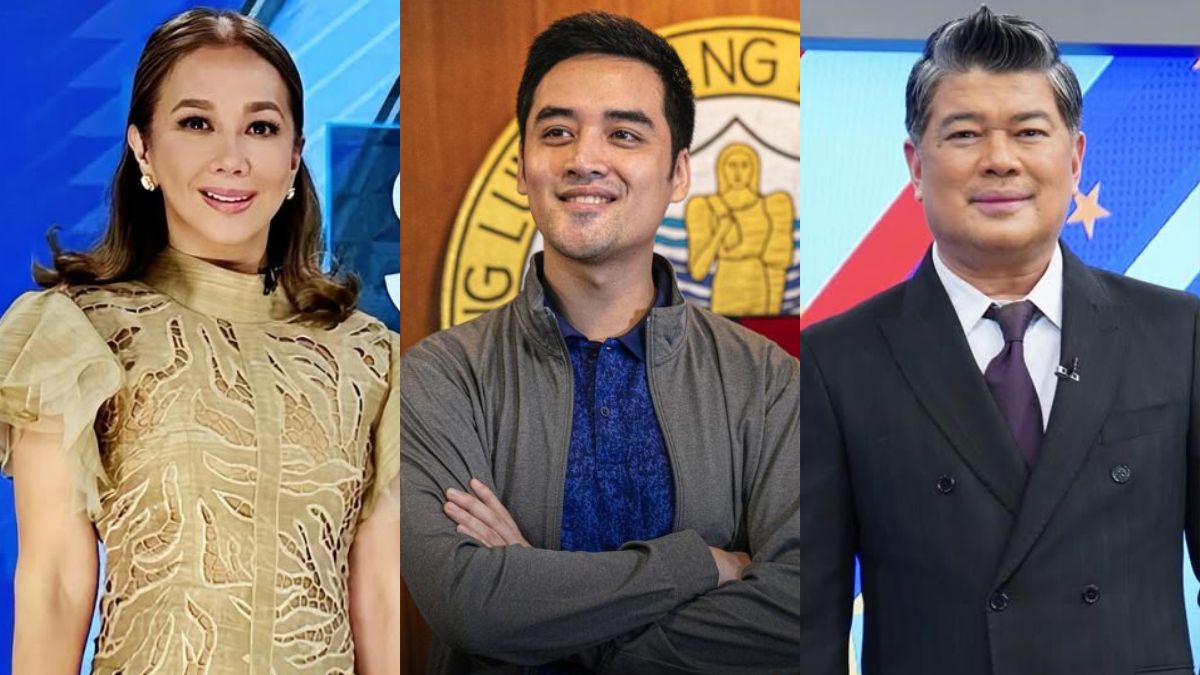
And perhaps that’s why this comment stung for some. Coming from someone like Vico—who is widely respected—it carried extra weight.
Where Do We Go From Here?
Now, the question is: what’s next?
Some are calling for deeper conversations between public officials and the press to reestablish trust and clarify expectations. Others suggest the need for stronger media ethics education, especially for freelance journalists who operate without the backing of established institutions.
One thing’s for sure: this issue has sparked a discussion that won’t go away anytime soon.
In a media landscape where credibility can make or break careers, both politicians and journalists need to tread carefully—but also courageously. Transparency, accountability, and mutual respect must be more than buzzwords. They need to be standards.
Final Thoughts
Mayor Vico’s statement wasn’t just a criticism. It was a challenge—a challenge for both sides to do better. For journalists, to continue protecting their craft’s integrity. For public servants, to engage with media fairly and responsibly.
Whether you agree with him or not, one thing is clear: when someone like Vico Sotto speaks, the nation listens—and sometimes, even the most uncomfortable truths need to be heard.
News
Piwee Polintan ng Jeremiah Band Pumanaw Na: OPM Fans, Nalulungkot sa Pagpanaw ng “Nanghihinayang” Vocalist
Matinding lungkot ang bumalot sa mundo ng Original Pilipino Music (OPM) matapos pumanaw ang kilalang vocalist ng bandang Jeremiah, na…
Cong. Arjo Atayde Bumasag sa mga Isyu ng “Ghost Projects”: “Walang Multo sa District One, Malinis ang Konsensya Ko!”
Matapos ang sunod-sunod na batikos at mga paratang ng umano’y “ghost projects” sa kanyang distrito, tuluyan nang nagsalita si Quezon…
Raymart Santiago Binasag ang 13-Taong Pananahimik: Matinding Pahayag Laban sa Mag-inang Claudine at Inday Barretto, Tinawag na Pawang Kasinungalingan ang mga Akusasyon
Matapos ang 13 Taon, Muling Uminit ang Isang Matandang AlitanMatapos ang higit isang dekadang pananahimik, sa wakas ay nagsalita na…
Matinding Pagbubulgar: Vince Dizon Isiniwalat ang Malaking Anomalya sa Flood Control Projects; Mga Dating Opisyal Tuluyang Nasangkot
Nagulantang ang publiko matapos tumestigo si Bases Conversion and Development Authority (BCDA) President at dating DPWH official Vince Dizon sa…
Trahedya sa Pangarap: Kabataan sa Modeling at Migrant Work, Naloko at Napinsala sa Ilegal na Negosyo Abroad
Sa bawat kabataan na naghahangad ng mas magandang buhay, dala ang pangarap na magtagumpay sa ibang bansa, may kaakibat na…
Trahedya sa Las Piñas: Tatlong Buhay, Pinatay sa Loob ng Kanilang Tahanan Dahil sa Alitan at Sinasabing Inip sa Relasyon
Simula ng TrahedyaLas Piñas, isang tahimik na barangay, ay nagulat sa isang nakakakilabot na krimen na kumalat sa buong komunidad….
End of content
No more pages to load

